If you’ve come looking for some options trading services reviews to help you make the best choice possible, you’ve come to the right place.
But we want to help you find the best trading service that fits YOUR trading needs, whether that ends up being our service or a different one.
But before we get to the reviews, let’s cover a couple of the basic ideas that come with trading options.
 What does options trading mean? You can trade stocks but also many other assets such as currencies, commodities etc. But what is an option exactly? Options give you the right (but not obligation) to buy or sell a stock at a pre-determined price before a specified expiration date.
What does options trading mean? You can trade stocks but also many other assets such as currencies, commodities etc. But what is an option exactly? Options give you the right (but not obligation) to buy or sell a stock at a pre-determined price before a specified expiration date.
We know that trading options can be difficult for new traders, but with the right information and experience you’ll soon find it to be a lucrative endeavor. We’ve put together this blog post to help you get started on your journey through the world of options trading.
Options trading services reviews
Trade Ideas
With the help of artificial intelligence, Trade Ideas has created a revolutionary trading platform that provides subscribers with real time trade recommendations. The software uses more than 70 proprietary algorithms and runs 1 million simulated trades each night before day one starts!
Trade Ideas also provides its customers with real-time stock trade picks, along with recommended entry and exit points. The company’s internal broker can also execute trades on your behalf rather than you having to buy or sell manually through separate brokerage accounts– all in one comprehensive day-trading plan for each pick they offer!
Trade Ideas includes a simulated trading option that lets you practice before slinging your hard-earned cash around the market. This is the perfect opportunity to get used with all of its features and make sure it’s something worth investing in for real, as plans start at $1k per year or higher if upgrading from standard offerings which can be purchased on their website here.
The one downside is that the software is quite complex, and takes quite a bit of time to learn.
You can find more information here.
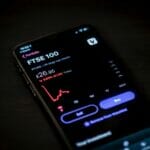
Mindful Trader
Inspired by the success he had trading stocks, Eric Ferguson devoted four years of his life to developing a service that would allow anyone with an internet connection and $500 in capital or less access. The Mindful Trader platform offers live-trading strategies through which users can invest alongside him at any time while enjoying upwards 181% annualized return–better even than what is available for those who just wait it out on average stock markets over 20 years!
The one downside is that Eric sends A LOT of trade ideas out every day.
So truth be told, if you were to trade all of his recommendations, you’d need a very large account.
In his first year as a trader, Eric began to focus on the micro S&P500 future contracts. He added options trades in April 2021 after gaining valuable insights from subscribing Mindful Traders which provides subscribers with videos explaining how he developed strategies for stocks and option trading successfully!

The Empirical Collective
The Empirical Collective focuses on option swing trades. Their senior traders have been beating the returns of hedge funds for over 2 decades.
They have historical yearly returns of over 2,000% – leaving their members incredibly happy.
Aside from their options trades, they also have a number of other trading portfolios that they provide their members.
These portfolios focus on longer term stock trades, with many of the stocks being small cap companies that they say are poised to experience explosive growth in the next 18 months.
Who has the best options trading advisory service?
Ultimately, with The Empirical Collective’s win rate and the fact that they also include stock picks, we feel they offer the most value for the money.
You can sign up for a membership here.
That said, if you want automated trading and in-depth trade analysis, you could also look into the Trade Ideas software as well.

Other questions people often asked when searching for information on options trading services reviews:
Which option trading service is best?
As per our review above, we feel that The Empirical Collective is the best option trading service available right now.

Is Option Trading good?
It depends on the individual.
Option trading is a suitable investment for those who understand and can afford to take higher risks, as their expected return rate should be much higher than other forms of investments such as stocks and savings accounts. Usually, individuals without income (or those with lower incomes) are advised against this type of investment because the potential scales are so large, it’s too easy to use up all your money in one day where you could have simply set up an automatic deposit every month to buy stocks or savings bonds. The flipside of this advice is that if somebody has enough disposable income per year to be able to invest at least $3,000/month into option trading, then they will often see more available cashflow when trading options.
Are market chameleons worth it?
No. It’s not worth it because even trading emini on margin would be safer than market chameleons and you’ll still get a better return on your money.
Market Chameleons is an automated trading program that makes profit projections, generates trade signals, automatically executes trades, manages risk exposures to individual stocks or index levels, rebalances portfolios based upon specific thresholds for time bands of traded securities, and performs hedging against equity-market downturns for both portfolios and individual stock accounts. Market Chameles also charges high fees to join the service which are high in relation to the likely profits that traders can earn through investing themselves without help from someone else.
Can options trading make you rich?
Yes. It may take a while, but if you are in it for the long haul, your patience can result in future wealth. Options trading is just one way to “buy low and sell high.” You can also do this with stocks or by investing when markets are low and then waiting to withdraw the money until they’re higher again.
What is dark pool trading?
Dark pool trading is a common practice utilized by large financial institutions, banks, and hedge funds to execute trades of equities or bonds in high volume without spiking up the price. This ability to stay hidden ensures the high-volume trader will have better purchase prices on their stock or bond terms if they are not out bidding anybody else around that time.
The truth is that investors are at the greatest advantage when they know how to buy low and sell high. Dark pools offer opportunities for traders get in early with stocks before news comes out without anyone else knowing what you’re buying.

What is implied volatility?
Implied volatility is the measure of what market participants expect for future volatility.
Implied volatility is a statistical representation of the price at which you can purchase insurance to protect against a possible change in an underlying market’s price in comparison with current levels and compares it to current levels. It’s useful for people who want protection against large swings, but don’t want to pay through the nose either. Potential trades often have low implied volatilities because they’re fairly safe from changes happening soon – or high implied volatilities because there’s a lot of risk that present conditions will change drastically.
What are the best option strategies for income?
Option strategies can be a great way to generate a stream of income from your investments. By selling call options against stocks you already own, your exposure to market volatility is reduced, and you’ll lock in a known rate of return on the stock should it appreciate in value. The other possibility would be to buy protective put options for stocks that are holdings in your portfolio. This will pay off if the markets take an unexpected plunge, but it’s complicated enough that I’d not recommend this strategy unless you’re extremely knowledgable or have research time set aside to manage the strategy each day.
Why do most options traders lose money?
Because they have a psychology to want to always be in the trade because it has been profitable in the past.
What does this mean? In trading, you should only stay in a trade when there is a good chance that if you quit now, your money will grow. This means not being in trades where there might be slippage or market noise that causes price fluctuations. What do investors usually do? They exit when it appears that the investment is going south and then buy at a lower price later on, hoping to make up for losses incurred from doing so many buy/sells with additional sales at the wrong time.
Why is dark pool trading legal?
It’s difficult to say because there are so many regulatory bodies and it depends on the type of trading. Some forms of dark pool trading may be legal because they function in ways that are similar to traditional exchanges where shares are taken away from public display but the speed is kept secret. Others may not be legal because they break rules by trying to manipulate information at high speeds without transparency. Dark pools exist, but they’re often looked down upon for breaking securities law in the United States. For example, in 2013 Goldman Sachs agreed to pay $1 million USD due to allegations of fraud involving their “dark pool.”
Do dark pool trades affect price?
Yes, dark pools exist purely to allow the largest traders create trades without impacting prices. They’re also used by investors who can’t trade on public exchanges because their holdings are too large, or too valuable to be traded there because of cross-order requirements that would change the price.
Some research has been done on how dark pools affect trading volume and prices with one study concluding that “dark pool trading reduces volatility.” The key benefits of dark pools are that they provide liquidity for customers without affecting prices as has been seen with predatory high frequency trading tactics. In this way it is a more level playing field as brokers compete instead of using “predatory HFT” where algorithms move in at lightning speeds ahead of traders.
Are dark pool trades reported?
Some of them are reported, but many aren’t.
Some large traders will trade on the “lit” order books to disguise the size of their trades, and then trade in a dark pool–thus creating a dark pool for both lit and dark orders. Dark pools often offer much higher volumes than lit exchanges because they do not have as much overhead as a lit exchange. They deal in small lots, which may account for why those orders are less likely to be seen from regulatory perspectives. Nearly all now-defunct proprietary trading firms used this transaction type extensively because it can allow traders to make huge bets without rippling price movements across the market.
Is implied volatility good?
Yes, in general.
Implied volatility is a proxy for the risks in an option’s price relative to a state of complete market equilibrium. Implied volatility is predicted to be too high when options are overpriced and will return to normal when arbitrage from the underpriced half of all suggests that they have been profited from enough or that it no longer pays off for their sellers. This assumption only holds true if the near term volatility proves to be identical with its long-term average – which it has not been during the past year. An increase in implied volatility typically indicates investors’ expectations that underlying security prices will experience sharp moves because stock markets have become pro-cyclical, instead of counter-cyclical before this time period.
Should you buy options with high IV?
Option contracts are priced, in part, on the probability of an event occurring at or before some date. The more probable the event is to occur, the lower the price of the contract. So options with high implied volatility are often cheaper because there is a better chance that they will expire worthless and therefore be worth nothing. That being said, these are more volatile so if you need to exit your position quickly then it can have greater consequences that outweigh its potential for profit. Regardless, if it has low volatility then you’re likely paying too much for them due to underpriced option contracts – but this doesn’t mean you’re guaranteed profit either way so it’s still up to personal preference which kind of option contract one chooses.
How do you know if options are cheap?
Typically, investors wishing to take a longer view would look for an option that is “out of the money,” which means it has time value above zero. The total delta of the call option will be greater than or equal to zero assuming that stock prices maintain their current trend. If the stock prices suddenly reverse direction and increase, the call options will suddenly get more expensive for traders who wanted to get long on them at a lower price. In this example, you should buy only if delta >0 and gamma >0 because this indicates higher probability of profit. Similarly, if delta <0 or gamma<0 then you should stay in cash in anticipation of a decline in value and until both indicators cross over into positive territory again.
What is the safest option strategy?
A covered call position. A long stock with a short out of the money call written against it. The key to making money with this strategy is selling the option at what’s called “an attractive price”.
For example, if XYZ stock is trading at $50 per share when you want to buy it for your portfolio, but you’re afraid that XYZ might go down over time, then you could buy the shares anyway and also sell an XYZ $45 covered call for $1 per share in order to acquire insurance on your purchase in the form of protection against possible downside moves.
Why covered calls are bad?
The problem with covered calls is that if the investor sells it before expiration, they will have to pay taxes on 100% of the profit. If you sell a call option and then buy it back at a later date for less than the strike price, the IRS assumes that there has been a wash sale and will tax you 100% of your profit. It can be difficult or impossible to “wash” an investment in this scenario because selling anything would trigger capital gains taxes (both technically and practically, as brokers usually charge more commissions on securities sold versus those bought).
Can you lose money on a call option?
Yes! If the underlying price is below the strike price when expiration arrives, you’ll lose 100% of your investment.
Example 1) XYZ is trading at $45.00. A call option costs $1 per share with an exercise price of $50. If XYZ does not close above $50 on expiration date, then the investor will lose their entire investment because that option will expire worthless or without intrinsic value since it can’t be more than priced at zero dollars and zero cents under any circumstances whatsoever (that’s how options work). So if XYZ closed on the expiry day at $40 for example, then they would have lost 100%.
How do you profit from options trading?
You can make money through options trading by buying or selling options.
An option is the right (but not the obligation) to buy (for a call option) or sell (for a put option) one unit of at an agreed price before a given date, called the “expiration” of the contract. The prices for both calls and puts on any given security can differ significantly depending on whether market participants expect that stock’s value will increase or decrease. For instance, if you think Microsoft stock will go up over time, you might buy either a call or put on it so long as doing so is less expensive than holding onto the shares themselves.
How do you successfully trade options?
- Watch the market closely
- Patience is key
- Avoid delay trades, trade smart and only engage when you see a good opportunity
- Consider margin if necessary to reduce risk exposure
- Place trades at the best price possible – there are bargains out there just waiting for you to buy them!
Can you make a living selling options?
Yes, there are a number of strategies that can allow someone to make a living selling options. One is to sell or buy long-term out-of-the-money options for call buyers and put sellers respectively. The other is to sell puts against stocks you own for which the market price has increased substantially but its price actually constitutes a good deal of downside risk if it falls back down to an appropriate level. In brief, one makes steady profits from this strategy as long as the stock’s high market value doesn’t drop too much below an appropriate predetermined value.
How difficult is options trading?
Options trading is one of the most difficult forms of trading and should not be done without an advanced understanding. With so many possible outcomes, there can be a significant number of opportunities for losses as well as gains.
Options traders trade the rights to buy or sell securities at a fixed price for a fixed period of time. Depending on market conditions, these options may expire worthless. Traders also run the risk that their option will “exercise” – meaning that they must purchase (or sell) stock at the agreed-upon price – which can result in either lost or enhanced profit potential depending on whether the trader predicted correctly and bought (or sold) before expiration date.
Why do 90 percent of traders fail?
Sadly, most traders failed because they lack the knowledge to take a correct investment decision. The markets are constantly changing their behavior and this is something that a trader needs to keep a close eye on.
It is not enough just being well-informed about economic development or investing in the right stocks as much as it’s necessary to be aware of all kind of signals happening in them which may substantially affect trade conditions. In other words, you need an advanced education about technical analysis as well as sound knowledge of risk management techniques and money management strategies.
Information can never be too extensive when it comes to trading because no one has ever seen every event happening inside the market before so there will always be new surprises waiting for us at any moment.
Are options gambling?
No, options are contracts. Options are contracts on future buying or selling of a certain asset. You can agree to buy at a certain price up until some date in the future. If the underlying security is trading for less than the agreed upon price on that date, you’ll make money because you bought cheaper than you could’ve if you waited – and if it’s trading for more, like everyone else agrees to at the same time by buying an option contract with someone who’s decided to sell (since they’re saying it’s worth more), then after your contract expires you simply decide not to buy any shares because they’re too expensive.
Why do hedge funds use dark pools?
Because they don’t want their trades to affect the stock prices.
Off-exchange trading has existed for a long time, and dark pools represent one type of off-exchange trading. Dark pools are privately negotiated deals between institutional investors where buy and sell orders are matched (mostly) anonymously.
Can shorts cover in dark pools?
No. Shorts are typically not executed in dark pools to avoid predatory traders taking advantage of less sophisticated investors, maintaining the transparency of the stock market for individual investor protection.
Dark pools are private exchanges that allow large block trades to be executed without showing pricing information until after the trade is completed. They also serve as an alternative to lit markets if there is a sudden price spike. But dark pools now make up 40% of equity US trading volume – many by HFT-driven “Predatory” programs, which could prey on unsophisticated individuals who are maximizing their profits with marginal information at work – rather than interacting with each other through an open exchange.
Are block trades good or bad?
This is a hard question to answer, but we will say that we don’t believe it’s good nor bad.
Block trades usually play a role in the pricing and execution of option contracts and other derivative securities. They can be created spontaneously or through negotiation between two parties. Financial advisors typically consider block trades as an attractive feature because they offer guaranteed execution for trading, even if one party has trouble executing their side of the trade due to market timing issues imposed by capital requirements compliance and settlement procedures for options or futures contracts which may last up to three days depending on settlement type selected.” So while there are benefits to block trades there are also negatives such as less liquidity. ”
Does volume include dark pool?
No. Dark pools are large retail orders that are not visible to other market participants, which would make it difficult for dark pools to handle volume in the way the question refers to.
The US Securities and Exchange Commission defines dark pool trading as follows: “Dark Pool Trading entails transactions where a stock or security is bought or sold by a buyer and seller without any exchange middlemen. It is executed by matching buyers and sellers anonymously via computer algorithms.”
How do you spot a dark pool activity?
Dark pools are a great way to find out what other institutional traders may be doing in their trades. Sometimes, these institutional traders will place their orders before the market opens. So when stock prices open, you should see it go up after the market opens or right before lunchtime for an hour or two. This is because they were buying early and at less of a cost than if they had waited until right before lunchtime.
What is a trade type sweep?
A stock trade type sweep is when a brokerage house will accumulate enough shares of a particular company to meet the required holding level and then buy or sell that many shares all at once.
A few examples:
– Brokerage House buys 10% of the outstanding shares and accumulates this amount gradually by making trades day after day.
– Brokerage House buys entire block of 130,000,000 outstanding shares in one go (a “block trade”).
– The broker’s trader now owns all those stocks he had been buying little by little. And now he can make his moves as big as he wants! Exercising his power over them as they please.
How do you profit from volatility on a crush?
By selling a call.
Selling a call is when you have bought one or more shares of stock and sold the right to “call” the shares from yourself to someone else for an agreed-upon price until some agreed-upon date in the future. In return, the other party pays the seller a premium up front, which compensates for any loss in value that may occur should they indeed purchase those shares before they expire what’s called “the expiration date”.
Coming back to our original question, we need to know three things: (1) how much volatility we anticipate; (2) what investment length we would like; and (3) how much time value there is in regards to coming close but not reaching our strike price.
What is implied volatility crush?
A situation where traders are noticing the possibility of a statistically significant drop in implied volatility during an already low-volatility market.
Implied volatility crush is when there are significantly high trades, orders for puts and orders for call, that have sparked fear among traders that fear that’s pushing them to “crush” or reduce their positions.
Crush can also refer to an event occurring which causes one side of the market to push down the price dramatically. When stocks become more volatile it’s called stock crush instead.
How much IV is too much options?
For options, implied volatility is a relative metric. An option can have too much implied volatility for whatever level of volatility that particular investor wants to take on.
What I mean by this is that volatility isn’t a black and white concept with an absolute definition of “it’s too high.” It’s actually contextual – the context being what type and how much risk you’re looking to take on as well as your time frame. The person asking this question may want to invest in shorter-dated options (options where time value has less time left), which would be beyond their comfort range; whereas another answer might involve more of an investment perspective, which might be appropriate for them if they are diversifying into these investments.
Why are some call options so cheap?
The option prices are low because the 4 possibilities for stock price movements outlined below could not happen.
Out of the money options are so cheap because they don’t carry any intrinsic value – you’ll never get to keep anything if it happens, which is why their prices can be so much lower than in-the-money or at-the-money call options. Furthermore, in a zero interest rate environment, many securities with no earnings potential can be freely traded with little consequence on a portfolio’s make up. This is another factor that contributes to out of the money call options being very inexpensive.
Can you live off options trading?
Yes, with hard work. It is possible to live off options trading in the short term with living on high risk and taking high risks, but if someone wants to do so for an extended period of time without needing to care about “going somewhere” they better be VERY careful.
Options trading can feel like gambling at times, although it’s financially safer than betting your money on games of chance in the casino. So if you’re willing to take that risk then absolutely yes!
It’s not uncommon for traders who are more focused on making money quickly or already have a good deal of wealth saved up before retirement make go the option route while some others may choose this profession based on their long-term goals.
Is there a downside to selling call options?
Yes. The most common way that people lose when they sell call options is that the option writer loses on shares in a stock or index that decreases in value, leaving nothing to share with the option purchaser.
This typically happens if a stock has a significant drop in value during the time frame of an option contract, and often occurs when markets have been volatile over a long period of time. In many cases, when this happens it’s because so-called “leverage” is being used by speculators who are borrowing money from their broker with the obligation to pay back everything they borrowed plus interest come tomorrow morning.
Whats the most I can lose on a call option?
The most you can lose on a call option is the purchase amount.
A call option gives you the right, but not the obligation, to buy an underlying asset at a certain price (strike price) for a limited period of time (until expiry). If and when you exercise your right and buy that asset, which is what happens in 99% of cases, then you start realizing losses as soon as that trade proceeds. When we talk about losses we’re talking about two types: Credit Spreads and Time Decay.
Is options trading Better Than stocks?
It depends. An advantage of an Options contract is that it usually settles in less than a month and the full value of the trade can either be lost or won, depending on if you make your bet correctly. A disadvantage is that brokerships may not let you buy “puts” which provide protection against a drop in price after acquisition because this would be seen as pessimistic behavior. Additionally, options traders need to understand that they are purchasing contracts with intrinsic values independent from any other market factor such as time or company performance, so what will happen if the stock doesn’t go up?
My opinion-Do both! Stocks are great for building wealth over time while Options are good for making lower risk trades right now in the hopes of generating cash flow.
Why is trading options a bad idea?
Some people are fascinated by options trading. Others say it’s a very bad idea.
Ultimately, the decision for any investor depends on their own risk tolerance level. For some investors, the potential profits will be worth all the risks they take in order to become successful at it; these are called “disciplined speculators”. For those who don’t enjoy taking risks, maybe binary options provide an interesting opportunity to make money with very little risk involved?
Options trading is risky because you could lose your entire deposit if you don’t know what you’re doing (both as buyer and as seller). And this is a big part of why we put together these options trading service reviews – because most people are best off following the trades of a more experienced trader.
Why do most options traders lose money?
First, he failed to control the losses. Second, he could not emotionally invest into his positions because he believed that they were doomed. His account balances would experience drastic swings independent of the price action of the underlying stock; one day it would be down $3,000 and up $5,000 on the next day – both again despite no change in what was happening with the underlying asset.
Is dark pool trading Real?
Dark pool trading is NOT illegal or unethical. Dark pools – over-the-counter electronic brokering pools that allow large blocks of shares to be traded without affecting public prices – are used by institutional investors, hedge funds, and other large traders who would not want to move the market with their trade.
There are two ways dark pool trading can help individual investors, according to Kelli Keough, UBS’ global head of equity market structure research: “If you work for a pension fund or are an activist investor who wants to make high-volume trades without pressuring the stock price up…the fact that these venues exist can be helpful.”
What is considered a large block trade?
A large block trade is a sale of 10,000 shares or more per transaction.
Large blocks are seen in emergencies. For example, in the turbulent days following the Lehman Brothers bankruptcy in 2008, stock markets would often see a block trade of upwards of 3% of a company’s outstanding shares to be transacted all at once. Large trades allow speculators to move large quantities of securities without impacting market prices substantially for purchase or sale transactions.
Does Fidelity use dark pools?
Yes. Fidelity operates the company’s dark pool, Fidessa Securities LLC, and off-exchange trading system called Spaces.
Fidessa is headquartered in New York and also houses 1.) a full-service securities lending desk and 2.) liquidity enhancement services that provide access to alternative liquidity across various security types outside of traditional markets which includes market makers for OTC markets such as high yield bonds, mortgage futures, emerging market debt and other instruments.
Is a call sweep bullish?
Yes. A call sweep is considered to be “bullish” in nature, because it is used when an investor would like to buy stocks at a lower price than what the market has currently priced them. When the existing owner of this option sells their CALL contract to another party, they’re selling the right for themselves to purchase 100 shares at $20 within the next month. This happens concurrently with purchasing (or borrowing) 200 shares at $21 which are then sold on day one after three days. The seller therefore purchases profits or dividends from their 200 shares while only paying $1 for the CALL contract; thus owning 300 shares worth $42 without having incurred any additional fees.
Does IV increase before earnings?
Yes, implied volatility tends to increase before a company releases its earnings reports. One explanation for this could be that investors are eager to make trades before the report is released.
The primary reason for the increases in implied volatility is because of news reports from earlier in the month, or from other people trading on those news articles. Information could come from articles concerning things like major changes in a company’s business line, planned acquisitions and divestitures, CEO changes, terrorist activities overseas, strike actions taken by trade unions at facilities controlled by companies of interest to traders, disruptions stemming from geopolitical events (elevated terrorism alerts), adverse weather conditions affecting operations at particular businesses within an industry sector (elevations on flood watch or level for hurricanes).
Is it better to buy ITM or OTM options?
It depends. In general, it is always better to buy an option that has a higher likelihood of expiring in the money than it is buying options with a lower probability of expiring in the money.
The only way an option can expire worthless and so not payout any return on its cost is if all possible outcomes arrive exactly as anticipated, and this level of certainty never occurs within the real world. Buying ITM options comes with less risk than buying OTM options. Of course there may be some other factor such as volatility that might make OTM choices more favorable than ITM ones regardless depending on what else you’re risking when purchasing these different types of options.
Why sell puts in the money?
This is a good question. They sell these options because they already have a lot of money from the options premium and can afford to, or because they want to simultaneously protect their shares by buying an out-of-the-money put at the same time.
Example: If you own 100 shares of XYZ that are currently trading for $40 per share then you might consider selling 10 puts with a strike price of $44 for around $600 which would be considered as income. In this instance, if the stock falls below $44 per share, you will either buy those 10 so says back from someone who got them from your option sale or have them assigned to you.
Why Use an Options Trading Service?
Options Trading Services offer individual investors the opportunity to trade options in a way similar to how professionals will typically use them.
In many cases, amateur traders purchasing and selling covered puts or calls aren’t able to earn any money no matter which direction their trade goes in because it doesn’t take into account possible transaction costs and other factors that professional traders include while trading.
There are also many ways for an investor’s position in the contract to be lost without actually realizing a loss. An options trading service can help avoid these losses!
Choose a Plan that Matches Your Level of Expertise
You choose a program that matches your style, or you doom yourself to frustration in the long term.
It’s easy for people with different investing styles to find a broker they’re happiest with. Some brokers cater better to traders who have a definite viewpoint on market conditions and want order control when they’re in the market. Other brokers maintain liquidity across wide range of stocks, foreign currencies and futures contracts so traders looking for variety can get it without facing price slippage when the need hits them. A great broker cares about what kind of trader you are before giving personalized solutions precisely suited to your needs.
Keep the trading style in mind when you’re reading different options trading services reviews.
How is level 2 market data read?
High Level 2 Data Packages are for users that need more than Level 1 data, or who need to view the systemic depth of various markets. It is essential to read the description of Level 2 Data Packages on Quandl before making any purchase decision.
Level 2 Market data enable traders to see both price and time in relation with each other. A trader can see which prices traded through a specific range of time, while also seeing what prices impacted them during this timeframe (one-way orders). Thus, traders can use these levels of Market Data to make informed decisions about when trades should be executed on their platforms.
What is a sweep in options trading?
A request to buy or sell all the option contracts of a particular type at a specific time and price. If you select sweep, your broker will buy or sell the options on your behalf at the sweep settlement price. Sweep orders will be submitted as market orders and can’t be scaled, edited, cancelled, or manually settled before execution.
How do you profit from option volatility?
Option Volatility is the only risk to option trading. When volatility rises, it means that buyers are paying more because they are worried about prices going up, which increases both your bid price and your ask price. So the buy side values the options higher than what you paid for them, but doesn’t want to sell now – instead they’re taking an insurance position in case something bad happens down the road. When volatility falls, it means that sellers are paying less for their option protection, which decreases both your bid price and your ask price. So this indirectly decreases value of the underlying stock by interfering with its intrinsic value calculated.
Should I buy deep in the money options?
Studies 🧑🎓indicate that it’s generally best to trade at or just beyond the money 💰options, rather than entering deeply priced contracts that promise higher returns.
Strategy-as-entertainment aside, this book offers an excellent 🤩read on trading. I will also share my own personal 😃tho ughts regarding this topic as many would benefit from more details here:
Is it better to buy options in the money or out of the money?
Opting for options that are already “in the money” offers more protection from being “out-of-the-money”, since prices don’t change much and they will more likely be sold at below their worth come expiration day.


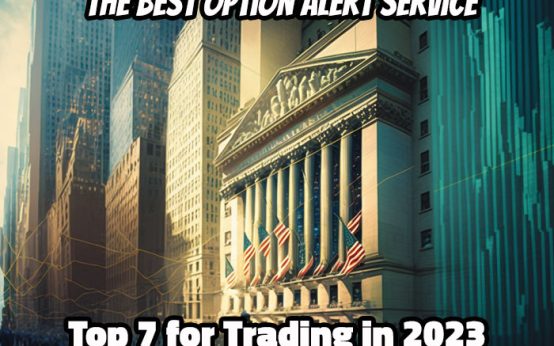 The Best Option Alert Service: Top 7 for Trading in 2023
The Best Option Alert Service: Top 7 for Trading in 2023 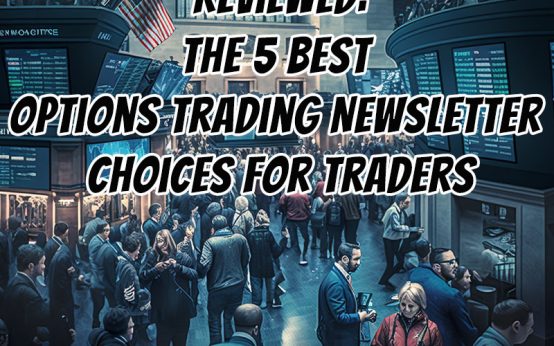 5 Best Options Trading Newsletter Choices for Traders
5 Best Options Trading Newsletter Choices for Traders 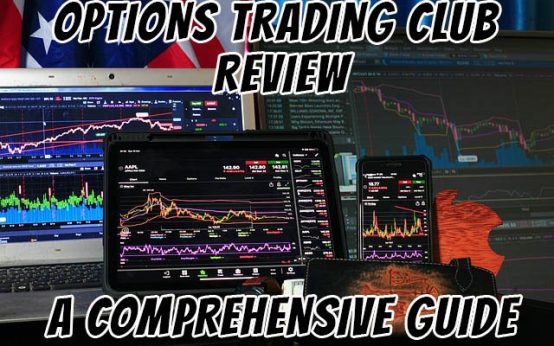 Options Trading Club Review – A Comprehensive Guide
Options Trading Club Review – A Comprehensive Guide 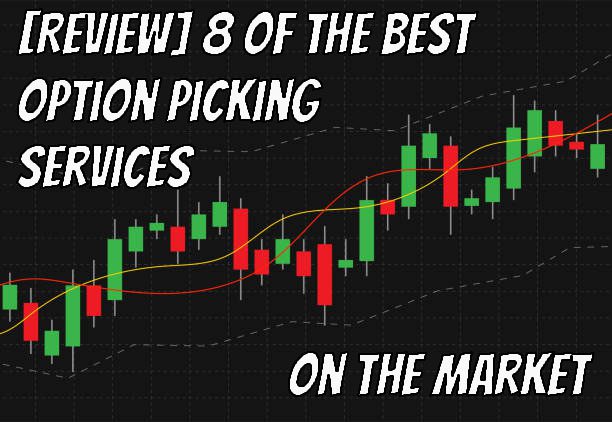 [REVIEW] 8 Of The Best Option Picking Services on The Market
[REVIEW] 8 Of The Best Option Picking Services on The Market 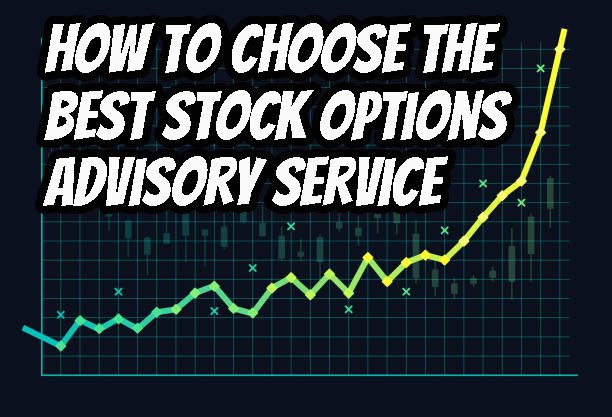 How to Choose The Best Stock Options Advisory Service If You’re New To Trading
How to Choose The Best Stock Options Advisory Service If You’re New To Trading 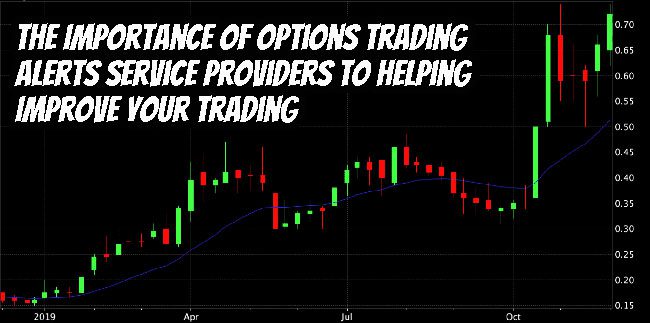 The Importance of Options Trading Alerts Service Providers To Helping Improve Your Trading
The Importance of Options Trading Alerts Service Providers To Helping Improve Your Trading